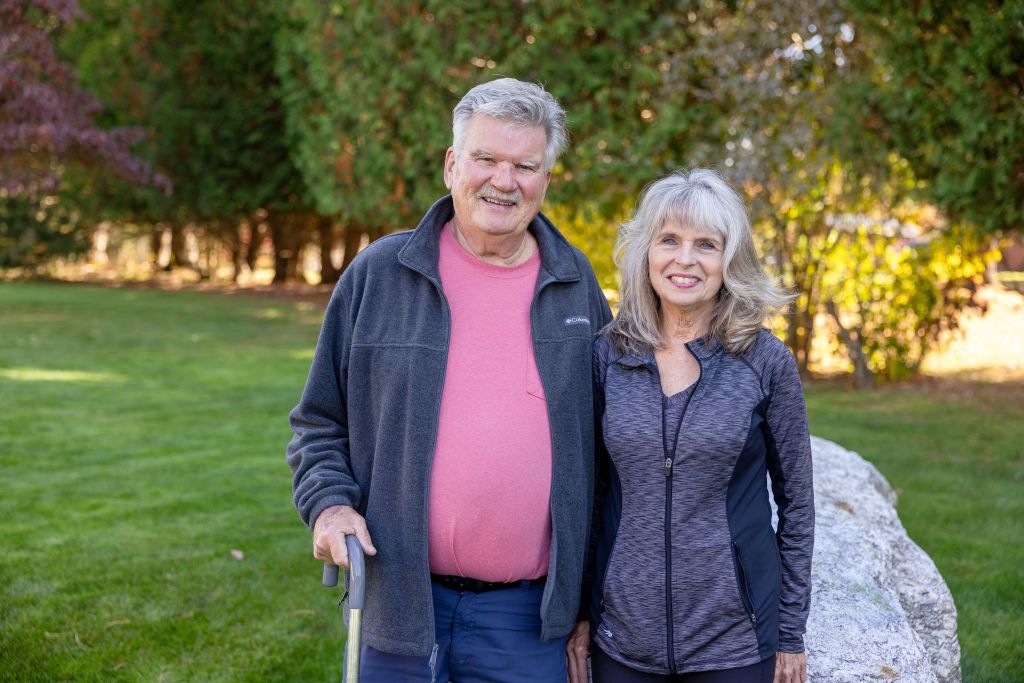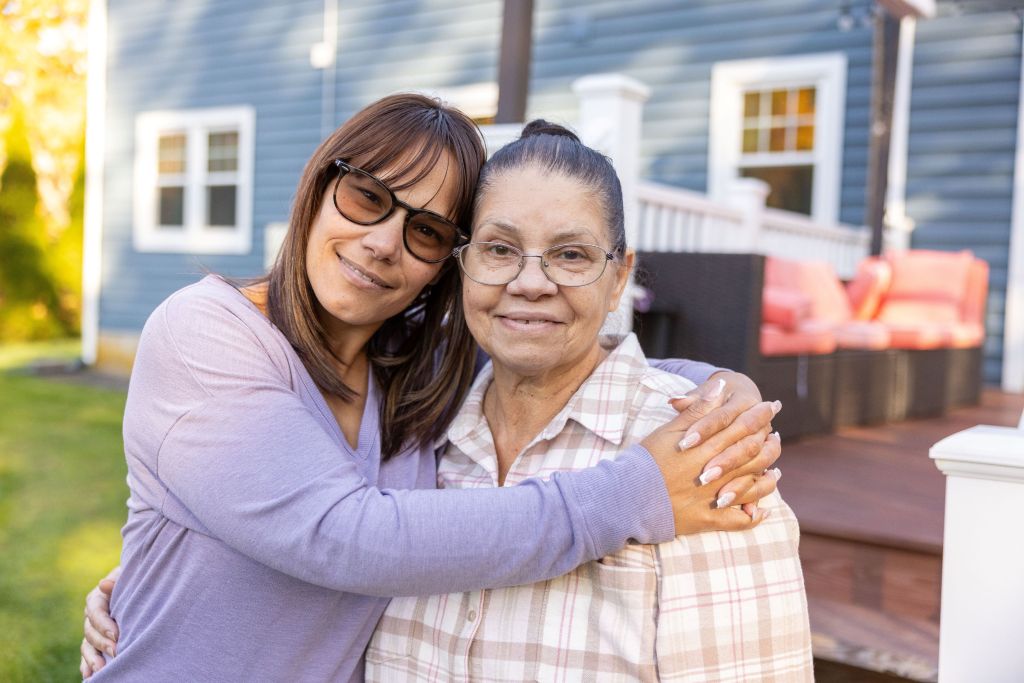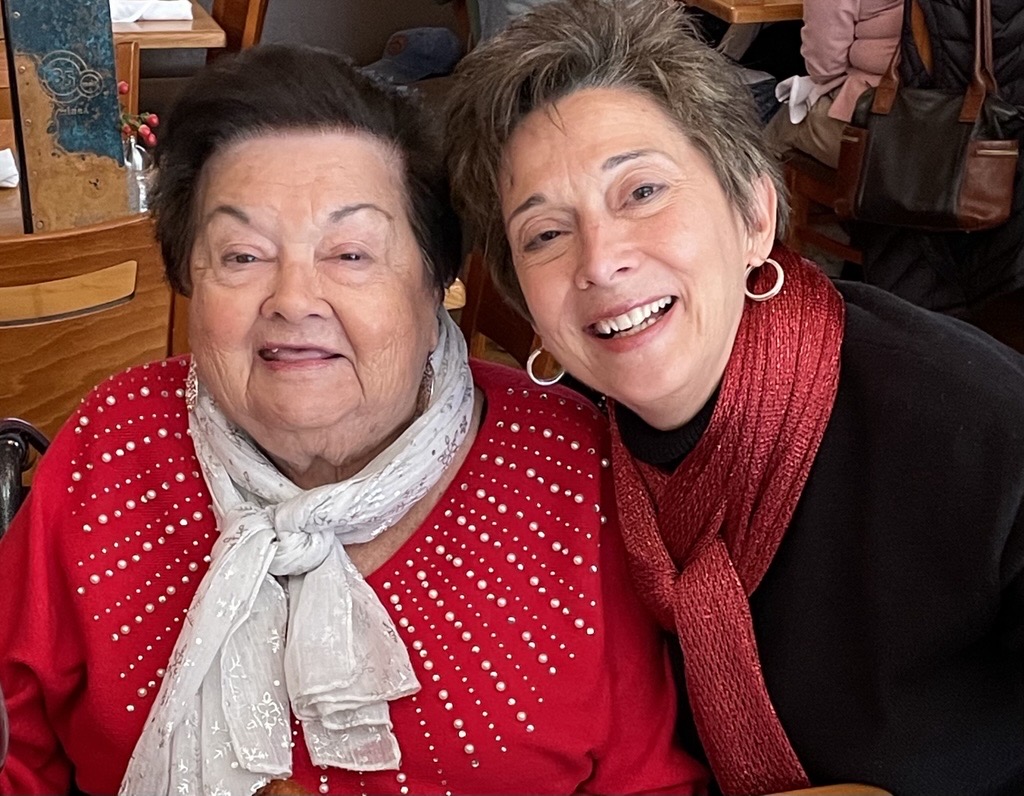
You’ve Got To Have Friends – A Support Group Unlocks the Secret to A Caregiver’s Relief From Depression And Loneliness
Bethany Kandel is a New York City-based journalist and author who writes about parenting, health, breast cancer, caregiving and many other subjects. She is the mother of two grown sons who happily still have two sets of grandparents in their ‘80s and ‘90s.
You’ve got to have friends. That’s what got Terri Corcoran out of the “depths of despair” and through 17 years as a fulltime caregiver for her late husband who had a genetic brain illness.
Within a month of her marriage in 1999 to Vince, a brilliant laser scientist, (a second marriage for both) he began to fall down. Within a few years he could hardly speak, walk or take care of his own personal hygiene. Eventually he was diagnosed with Fragile X Tremor Ataxia Syndrome, a neuro-degenerative condition, causing him to lose most of his physical and cognitive functioning. Five years into her marriage, Corcoran, of Falls Church, VA, became a 24/7 spousal caregiver.
“At times, I was tempted to run,” she admits, as she watched her beloved husband progressively deteriorate. “He wasn’t the person I had fallen in love with.” As a result of the constant stress and exhaustion, her own health and sanity began to fail. “It was excruciating; he needed so much care. I was horribly lonely.”
Then she found her saving grace; support from other people in her shoes. She didn’t realize how much she needed it or how much it would help.
Caregiving can be a stressful, isolating experience at times, but caregiver support groups are filled with people in similar situations, providing a safe place to discuss the challenges and rewards of providing care for a loved one. Caregivers can participate in both online programs from the comfort of your own home via social media or chat rooms, or in-person groups near where you live. That’s what saved Corcoran.
“The day I walked into my first Well Spouse® Association meeting I felt instantly at home,” she recalls. There were people of all ages whose spouses were suffering from chronic illnesses, dementia or debilitating accidents.
“They just got it,” she says, about her life, loneliness and the challenges of marriage to a sick spouse. At monthly meetings she was able to cry, vent and let loose the anxiety, anger and desperation she couldn’t share with her family and friends.
“I could talk about how horrible and difficult it was and everybody understood because they were going through the same things.” In some ways it was reassuring, Corcoran notes. “Everybody else’s stories always sounded worse than mine.” In addition to finding comfort and sharing practical advice, there was lots of laughter, too. “You can joke about incontinence in this safe group,” she says.
She also found solace and bonded with others in support groups online, occasionally asking questions in the middle of the night or just sharing a hard day. “People give you virtual hugs and that helps,” she says. Those in her online support community even have virtual New Year’s Eve parties, toasting each other and discussing what each is eating to celebrate, since they’re all stuck at home.
The peer support “has been my lifeline,” says the mom/stepmom of 7 and grandmother of 9. “Everyone gets so desperate that you can’t see the end. But when you let it out you feel better able to go on.”
Since her husband died last January at age 81, Corcoran, 65, keeps up with her newfound friends for support as a widow and she continues to help others who are new to family caregiving. Her message: “You do not need to be alone.”
To find a caregiver support group in your area or online, check out these organizations:
- Caregiver Nation Support Group: http://caregivernation.org
- The Well Spouse® Association, http://wellspouse.org/
- Family Caregiver Alliance’s Online Caregiver Support Group: https://www.caregiver.org/connecting-caregivers/support-groups/
- Caring.Com: https://www.caring.com/support-groups


